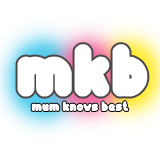Weaning advice:
.jpg) |
.jpg)
Weaning should start when your baby is around six months old.. 17 weeks is the minimum recommended age to introduce any solids but should only be done so on your health visitors say so. Weaning to early can cause problems later on in life.
Every baby is an individual, but there are three clear signs which, together, show your baby is ready for solid foods alongside breast milk or infant formula. It is very rare for these signs to appear together before your baby is six months old.
- They can stay in a sitting position and hold their head steady.
- They can co-ordinate their eyes, hands and mouth so that they can look at the food, pick it up and put it in their mouth, all by themselves.
- They can swallow food. Babies who are not ready will push their food back out, so they get more round their face than they do in their mouths.
Some signs that can be mistaken for a baby being ready for solid foods:
- Chewing fists
- Waking in the night when they have previously slept through
- Wanting extra milk feeds: These are normal behaviours and not necessarily a sign of hunger, or a sign of being ready to start solid food. Starting solid foods won’t make them any more likely to sleep through the night. Extra feeds are usually enough until they’re ready for other food.
·
Always stay with your baby when they are eating in case they
start to choke.
·
Let your baby enjoy touching and holding the food.
·
Allow your baby to feed themselves, using their fingers, as soon
as they show an interest.
·
Don’t force your baby, wait until the next time if they are not
interested this time.
·
If you are using a spoon, wait for your baby to open their mouth
before you offer the food. Your baby
may like to hold a spoon too.
·
Start by offering just a few pieces or teaspoons of food, once a
day.
·
Cool hot food and test it before giving it to your baby.
·
Don’t add salt, sugar or stock cubes to your baby’s food or
cooking water.
From 6 Months
.jpg)
First foods: your baby’s first foods can include mashed or soft cooked fruit and vegetables like parsnip, potato, yam, sweet potato, carrot, apple or pear, all cooled before eating. Or soft fruit like peach, melon, soft ripe banana or avocado as finger foods or mashed. Or baby rice or baby cereal mixed with your baby’s usual milk. Keep feeding them breast milk or infant formula as well but don’t give them whole cows’ milk as a drink until they are a year old.

Next foods:
Soft cooked meat such as chicken, mashed fish (check very carefully for any bones), pasta, noodles, toast, pieces of chapatti, lentils, rice and mashed hard boiled eggs. Also full-fat dairy products such as yoghurt, fromage frais or custard (choose products with no added sugar or less sugar). Whole cows’ milk can be used in cooking or mixed with food from six months.
Soft cooked meat such as chicken, mashed fish (check very carefully for any bones), pasta, noodles, toast, pieces of chapatti, lentils, rice and mashed hard boiled eggs. Also full-fat dairy products such as yoghurt, fromage frais or custard (choose products with no added sugar or less sugar). Whole cows’ milk can be used in cooking or mixed with food from six months.
Cups: introduce a cup from around six months and
offer sips of water with meals. Using an open cup or a free flow cup
without a valve will help your baby learn to sip and is better for your baby’s
teeth.
From 8 months
Gradually, in this time your baby will move toward eating
three meals a day. It will be a mixture of soft finger foods, mashed and
chopped foods.
Your baby’s diet should consist of a variety of the
following types of food: fruit and vegetables; bread, rice, pasta, potatoes and
other starchy foods; meat, fish, eggs, beans and other non dairy sources of
protein and milk and dairy products.
From 12 months
Your baby will now be eating three meals a day, chopped
if required, plus breast milk or whole cows’ milk and healthier snacks like fruit,
vegetable sticks, toast and rice cakes.
They can now drink whole cows’ milk. Choose full-fat
dairy products because children under two need the extra fat and vitamins found
in them. From two years old if they are a good eater and growing well they
can have semi-skimmed milk. From five years old 1% fat and skimmed milk is
OK.
You can give your baby:
Three to
four servings a day of starchy food such as potatoes, bread and rice
Three to
four servings a day of fruit and vegetables
Two
servings a day of meat, fish, eggs, dhal or other pulses (beans and lentils)

No comments:
Post a Comment